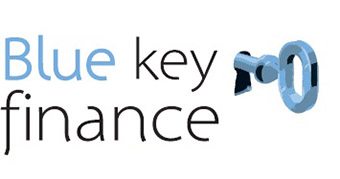Can you exit an off-the-plan purchase?
This article is timely as we’ve recently had a client who bought off-the-plan a few years ago and now the builder has gone into administration – will they get their 10% deposit back? We also had a client who bought off-the-plan 3 years ago with just a 3 year sunset clause and that builder pulled out of the contract by on-selling to another purchaser because it passed the sunset clause – what are our client’s rights. But, most importantly, can you exit an off-the-plan purchase?
Buying off-the-plan sounds great, with the possibility of stamp duty concessions, extra tax deductions and other benefits for first home buyers. But this year there were quite a few people who got caught out by the hidden risks. Read on to find out what you need to know if you’re thinking about buying off-the-plan anytime soon.
What does buying off-the-plan mean?
When you buy off-the-plan, it means the property you’re buying is not built yet. Typically, you’ll only have to pay the deposit upfront, then the balance of the purchase price once the property is completed. Because an off-the-plan purchase is a new build home, you may qualify for stamp duty concessions or first home owner concessions, depending on your circumstances and the State you live in.
What are the risks?
Lenders may offer conditional approval for an off-the-plan purchase, but they won’t lend you the funds until they have performed a valuation of the property upon completion. This year, many buyers were caught out because their off-the-plan property was valued less than the agreed purchase price and the lender would not lend the amount required to complete the sale.
There may also be other risks with purchasing an off-the-plan property, including:
- The final product may differ from your expectations.
- There may be delays of the development may not proceed. Your deposit should be refunded if this happens, but in the meantime, your money will have been tied up.
- If the developer holds on to your deposit (rather than putting it in a trust account), your money may be at risk if the developer goes bankrupt.
Terminating an off-the-plan contract
Terminating and off-the-plan contract can be tricky, but there may be grounds to do so. For example, if the vendor has engaged in misleading conduct or the developer doesn’t complete construction before the sunset date, you may be able to terminate the contract.
However, if you want to terminate the contract because a lender has valued the completed property at less than the agreed purchase price, you may have difficulty. You could potentially lose your deposit and may have to compensate the developer for any loss.
Seek legal advice about your options if you wish to terminate an off-the-plan contract. More importantly, ask your Solicitor to examine any contract before you sign, to ensure you have appropriate exit clauses in place – more about this below.
Settling before settlement date
Some buyers decide they want to sell the property before settlement. This is legal under most off-the-plan contracts and can prove to be lucrative if the property’s value has gone up, but there are risks involved.
Key considerations:
- Have your Conveyancer check that the contract allows for re-sales prior to settlement.
- Speak to your Accountant about the tax implications of reselling the property (you’ll likely be up for capital gains tax).
- You’ll have to pay stamp duty, additional legal fees and any agent’s commission, so be sure to factor these costs into your calculations.
- If you find a buyer but your contract with them falls through, you’ll still be bound to settle with the developer.
- Ask the developer to include a clause in the contract that allows you to terminate it if the completed property is valued at less than the agreed price.
Talk with me before you get started
If you decide to go ahead with your off-the-plan purchase, I can help:
- to organise preapproval on your home loan and help you choose a lender that will work with you on this type of purchase.
- to refer you to a reliable Conveyancer or Solicitor to help you avoid the legal pitfalls.
- to refer you to a buyer’s advocate to help you find the right property for you.




Leave a Reply
Want to join the discussion?Feel free to contribute!